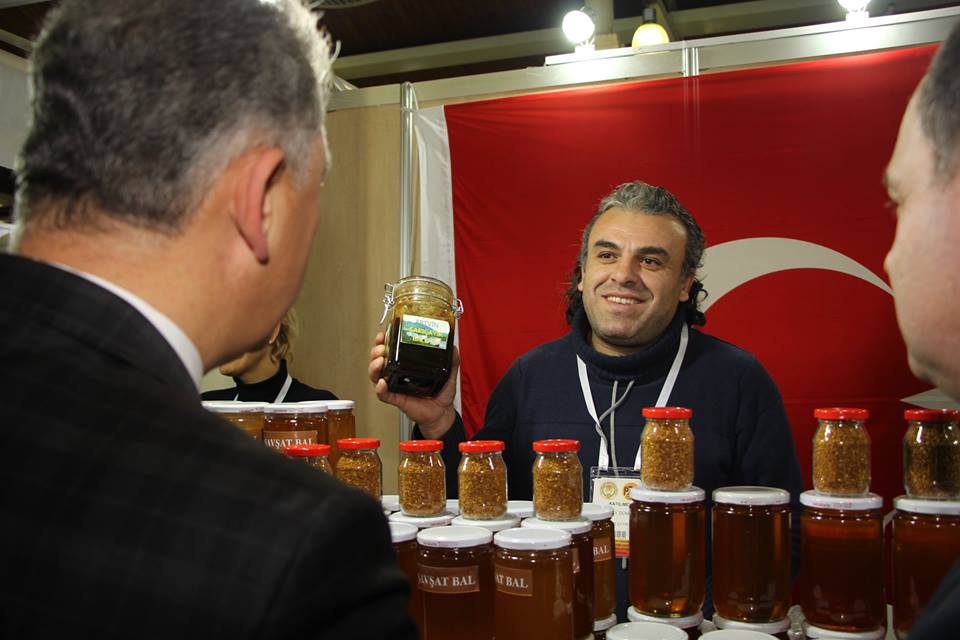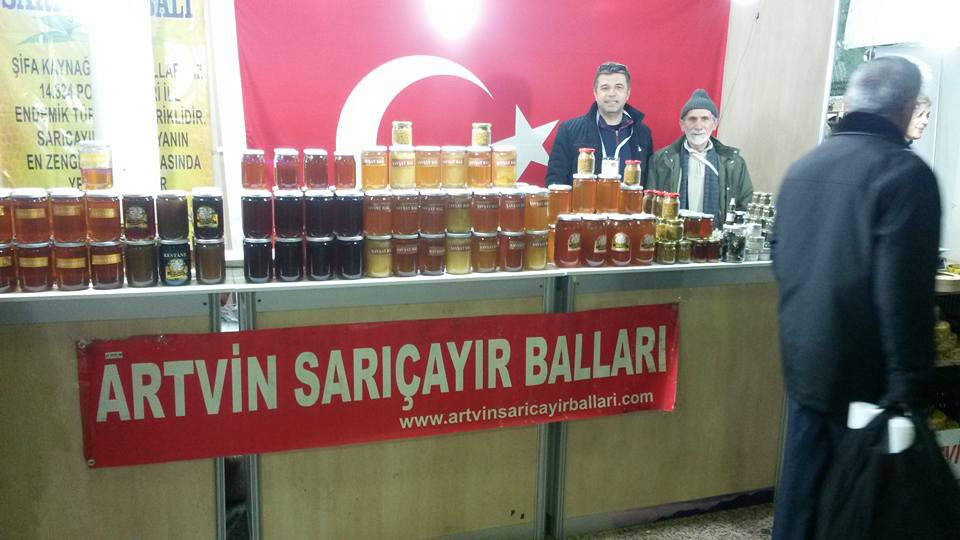The healthiest honey in the world it should also be “the best honey in the world” and inevitably “the most expensive honey in the world. But we don’t know for sure if things are like this.
The most popular and healthiest honeys we know are manuka, sidr, gelam, tualang, neem honeys. Or bashkir honey. But while these are expensive, there is another honey in this world which was crowned as the most expensive. 45,000 EUROs for 1 kilogram. Yes, like $47,000 for 2.20462 pounds. Sold in 2009.
Disclaimer: In this article I write about facts as they are presented on the Internet, by the owner of this precious honey. I have also added the answer of the cited laboratory.
Other than that, there are no other chemical analyzes available, no medical research to assess its medical value.
The question is why? Why would anybody give that amount of money for some honey? What can possible contain to deserve this price?
The founder of the honey is also telling us that in 2010 this honey was sold to some drug Chinese companies at 28,000 euros per kilogram. Why would they give that much? What is it in it that is so valuable for a drug company?
In 2014 this honey was sold for 5,000 euros. In 2016 the owner is still selling it in small jars of 170 g and 250 g, for the same price.
What is Elvish honey? Aka fairy honey? or in Turkish, “Peri Bali”?
Elvish is the invented language of the elves? Hmmm, the food of elves? Only that we don’t live in a movie….
The Turkish “peri bali” or “peri ballari” means fairy honey, or elves honey. No, I don’t think it is made of squashed elves. Though this would explain the price…
The story goes like this:

In 2009, a Turkish beekeeper, Günay Gündüz, saw lots of honey bees going in and out of a cave. It was on the mountain Saricayir Dagi, from Artvin Prevince, northeast Turkey. He followed them inside and discovered lots of combs hanging from the high walls.
With the help of professional climbers and 500 meters of rope, he harvested the honey. 18 kilograms of wild honey.
To know the value of this honey, he sent some samples to France, to the well-known CETAM Laboratory. (In Turkey there are only laboratories to certify the authenticity of honey, not its composition. This happens due to a huge number of honey forgers.)
According to Günay Gündüz (source), CETAM, the independent French honey control laboratory, analyzed the “elves honey” – as Gündüz named it, Peri bali in Turkish, and said it was a 7 year old honey with a very high content of minerals, probably due to that surrounding cave. And that’s it.
They evaluated it for 45.000 euros and bought one kilogram.
– In 2016 I emailed Paul SCHWEITZER, Directeur CETAM Lorraine Laboratoire d’analyses et d’écologie apicole, and asked him if this was true. He researched through archives but did not find any evidence about an analyzis ever made on this honey.
– When a potential buyer asked the owner of this honey if he has some available analyses, he said he can do them himself.
The story says that the next year, 2010, some Chinese drug companies also bought some honey for the price of 28,000 euro and that in 2014 the price dropped to 5,000 euros. From the 18 kilograms harvested in 2009, until 2014 the Turkish beekeeper had sold 6 kilograms. He still has some more, now at the beginning of 2017.
Why is the price decreasing?
Well, first of all, this honey is unique. It cannot be reproduced. In 2009 when it was discovered, the honey was inside the honeycombs. Its quality was very high. After harvesting, it was stored in glass recipients, and its quality decreased with time. That’s why it was 45000 euros in beginning, then 28000 and then 5000 euros. And I was not able to find its value now, in 2016.
What could make elvish honey so valuable?
1. The high altitude.
The cave is situated in a mountain with a height of 7,633 ft / 2,327 m. It’s the 33rd highest mountain in Artvin Province and the 619th highest mountain in Turkey. It is said there are lots of endemic plants growing on this mountain.
Artvin Province is a province in Turkey, on the Black Sea coast in the north-eastern corner of the country, on the border with Georgia. An attractive area of steep valleys carved by the Çoruh river system and is surrounded by high mountains and forest. It hosts a national parkland including the Karagöl-Sahara, which contains Şavşat and Borçka lakes. Şavsat has a semi-continental rainfall regime.
2. The weather.
Artvin Province has a rainy, cold Mediterranean climate (Akman, 1999). It is very wet and mild at the coast, and as a result is heavily forested. This greenery runs from the top all the way down to the Black Sea coast. The rain turns to snow at higher altitudes, and the peaks are very cold in winter.
Tough weather leads to specific plants, adapted to survive, plants which produce a nectar containing this surviving markers. The same happens other high plateaus, like Tibet. See Himalayan Red Honey – aka mad, toxic, hallucinogenic honey from Nepal.
3. The flora
The alpine zone above 2000 m consists mainly of steppes covered by meadows. There are dominant plants such as: Rhododendron ponticum L., R. luteum Sweet., Corylus avellana L., Alnus glotinosa L., Laurus nobilis L., Buxus sempervirens L., Daphne pontica L., Ilex colchica Pojk., Castanea sativa Mill., Carpinus betulus L., Picea orientalis
(L.) Link., Pinus sylvestris L., Acer cappadocicum Gleditsch., Frangula alnus Mill., Vaccinium arctostaphylos. And there are hundreds on other common and endemic plants (unique plants that grow only in this area).
4. The cave’s walls and storage conditions
Inside a cave the air is different. The composition of the walls, where the combs have been attached, is different. The temperature and humidity are different.
5. The bees
There are no specifications as to what kind of bees had made that honey. This is very important for the enzymatic content and subsequent transformation that would take place during the process of honey maturing.
Where can we find it?
Only at our beekeeper Günay Gündüz.
In December 2016 he said he still has some kilos to sell, the price still being 5000 euros.
For those of you who know Turkish, here is his FB Address and his answer: “Peri balimiz var elimizde mevcut 5000 euro kilo fiati”. Do ask him directly.
 pictures source: Facebook
pictures source: Facebook
Are all Turkish honey so valuable?
There are lots of monofloral and polifloral honeys in Turkey. While some are very common ones, like chestnut or acacia, others are specific to this country, due to endemic plants. it’s the case of Anzer honey.
Other honeys are famous for their hallucinogenic effect: mad honey from rhododendron.
Anzer honey is also produced on a high altitude plateau. Also from lots of endemic flowers. But in man-made hives. The price is also high, yet not that high. It may reach $1,000 per kg. Far from $5,200.
From the same plateau where elvish honey was found, there are beekeepers making a very appreciated honey, which has the name of the plateau: Saricayir. It should theoretically provide the same type of nectar as the precious elvish honey.
But Saricayir honey (Sarıçayır Balı – Süzme) from man-made hives is only $35! Why would the Saricayir honey from a cave be $5,200? Presuming that both honeys are made from the same nectar?
Draw your own conclusion.
Health benefits of elvish honey
What can I say… They are hidden from the population. They are obviously there, if a lab and some pharmaceutical companies bought it. But they are not revealed to public.
“People are surprised when they ask for the price of honey, because they are reacting in the first place due to a car bill, but they understand that honey is consumed not for food but for therapeutic purposes.” – Günay Gündüz
Meanwhile, to buy something that extravagant there must be palpable evidence that it’s worth the money. Research, studies, analyzes, clinical trials – we need all of these to believe something. Until then, it’s only a nice story about the honey of the elves. 🙂
=====
=====
References:
http://peakery.com/saricayir-dagi-turkey/
http://www.sweetbeez.org/blog/the-gold-stuff-as-pricey-as-gold
http://citeseerx.ist.psu.edu/viewdoc/download?doi=10.1.1.685.3288&rep=rep1&type=pdf
